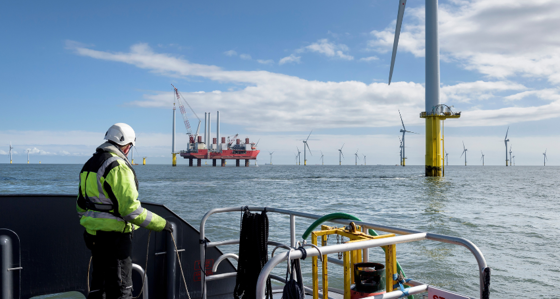
UK Election 2024: How can the UK achieve a net zero power sector?
6 min read 11 June 2024
With the recent announcement for a general election on 4th July 2024, the UK’s decarbonisation pathway has come under focus. The energy transition has been a salient topic for both main parties, the Conservatives and Labour.
In 2021, the current government committed to a net zero power sector by 2035. This was seen as a landmark decision that was designed to boost domestic growth in the sector.
This was put to the test during the Russian invasion of Ukraine which prompted the energy crisis and the subsequent cost of living crisis. These events signalled the need for an accelerated energy transition and have led to the future of energy taking centre-stage in the upcoming elections.
The opposition Labour party have sought to build upon the incumbent’s targets by pledging a decarbonised power system by 2030. The Labour party have explicitly cited an accelerated decarbonisation pathway as being imperative to increasing energy security and affordability. Here the incumbent diverges, as the Conservatives have raised concerns over an accelerated pathway costing the tax-payer too much and leaving the UK’s energy supply chains at risk of international volatility.
In this report, we analyse the party stances towards decarbonisation and why both of their targets remain at risk.
Spurred by the parties’ ambitious targets to decarbonise the power system, we will be releasing a series of pieces following on from this introductory note which will explore four key challenges to reaching a net zero power sector.
- The first issue will be centred around the challenge of deploying a sufficient volume of renewables.
- The second will take a step back and assess the ability of the existing and proposed grid infrastructure to efficiently deliver power for a net zero system.
- The third will discuss the implications of retiring thermal plants and what this requires in system services.
- The fourth, and final challenge, will explore the importance of low-carbon dispatchable technologies and their required deployment for a Net Zero system to cover the periods when renewable generation is low.
Each issue will analyse one of the challenges across five lenses: finance, technical, supply chain, policy, and social cost and affordability. In doing so, we seek to highlight the importance of a thorough and holistic decarbonisation plan in order to come within reach of a net zero power system within the next decade.
Our Experts


Related Insights

Trump trade tariffs: Impact on the UK EV uptake
The global automative industry is at a critical juncture, shaped by intersecting forces of electrification, geopolitical trade tensions, and national decarbonisation policy.
Read more
Create an “offshore energy mission control”, new report to argue
The UK needs to create an offshore energy “mission control” that has the power to cut through and connect different stakeholders, from government bodies, to oil and gas operators, renewables developers and financial institutions, argues a new report commissioned by Offshore Energies UK (OEUK) and created by management consultancy Baringa.
Read more
Driving economic growth by securing a cleaner and resilient future for the North Sea
Our report, published in conjunction with Offshore Energies UK (OEUK), outlines how the North Sea can continue to play a pivotal role in the energy system as the world shifts to net zero, while positioning the UK as a resilient, innovative and competitive player in the global energy landscape.
Read more
From early adopters to early majority: Driving the next phase of EV growth
As EVs are moving beyond the early adopter phase, what are the principles needed for mass market adoption and progressing towards net zero targets?
Read moreIs digital and AI delivering what your business needs?
Digital and AI can solve your toughest challenges and elevate your business performance. But success isn’t always straightforward. Where can you unlock opportunity? And what does it take to set the foundation for lasting success?